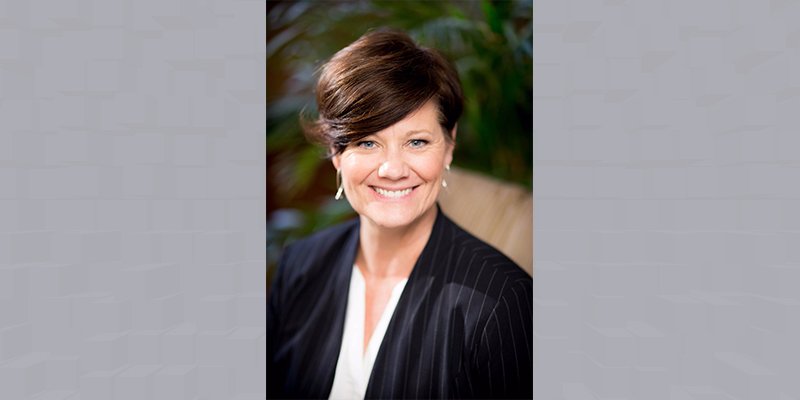Skip to content

Editor's Note: this is the second in a three part series on Julia Peacock, who is running California's 42nd Congressional District.
Sadly, many people prefer to treat troubled youth as disposable children. But, there are individuals like Julia Peacock, who realize that a positive influence in their lives can have an enormous beneficial impact. She taught at Boys Republic, a “200-acre honor farm” in California for troubled young men. Their website explains their mission: “Boys Republic seeks to give adolescent youth with behavioral, educational, and emotional difficulties an opportunity to achieve their maximum potential for responsible, self-directed life within the community.”
As a teacher, she knows that not only is she teaching her students, but she is also learning from them, too. She recounts, “Oh, I learned so much from them. I learned very quickly that they were still just kids. They wanted people to hold them accountable and to care about them. I learned that it’s easy to gain respect when you are honest. I have a 3” stack of pictures from graduations of my boys who were in my GED program. It was five of the most incredible teaching years.” Sadly, she also learned that she couldn’t “save everyone” and the death of one student to gang violence still lingers with her. However, she readily conveys that the rewards outweighed the heart ache: “Sometimes, and I talk about this a lot with my teacher friends even now, you’re just planting a seed that perhaps someone will water and watch grow. I used to tease the boys who couldn’t get their act together that I’d be an annoying voice in their head later telling them ‘I told you so’. I also told them I hope they hear my voice before it was too late.”
One success story from Boys Republic is a student, who received his GED and financial aid to attend a community college. He couldn’t understand why anyone would give him money to go to school. She imparted to him that “You’ll get a job and pay taxes. You’ll raise children who aren’t in the system. You’ll stop the cycle of violence and incarceration you were in.”
She further elucidates her feelings on education and our criminal justice system by explaining that “spending $20,000” to send someone, who has been incarcerated, to college would be “exponentially less than what it would take to house him in prison for his entire life and exponentially less than the money he will put back into the system through taxes and consumerism as a productive member of society. It’s simple math.”
When I asked her what she believes the federal and/or state government in California should do, so that students have better success in school she responded:
First, we have to fully fund public education and stop arguing about vouchers and other for-profit scams. We also need to mandate mental health services in our schools regardless of average income level of families attending. Right now, in my school district, we have ZERO mental health services for our students on campuses…If we can get to the root issues of why students come to school and don’t learn (tons of research on trauma vs. learning), we can get them to succeed at higher rates.
We also have to have much more input on the types of programs to have at our schools from parents, students, and teachers…We also have to bring back our ROP [Regional Occupational Programs] and other hands-on programs. Some of my favorite peers from high school went to their core classes in the mornings then had an auto or wood shop in the afternoons for 9th/10th grade then left campus for internships with actual mechanics, carpenters, etc. during 11th and 12th grade years. No Child Left Behind put all the emphasis on testing reading and math and took funding away from those programs that helped the student who didn’t do as well with book learning. CA. is working through Local Control Accountability Plans (LCAP) in our school districts now on Career and Technical Education, but we are still leaving parents and students out of the conversations about what they would like to see in the way of programs. We cannot cut funding for schools at any level, so my job will be to help guarantee states have the funding necessary from the federal government and that the programs implemented have practical evidence-based research efficacy.
Unlike Betsy DeVos, she understands the difference between proficiency and growth as metrics to gauge student learning. She believes that students should demonstrate proficiency and illuminated an example: “But at 17 years old, reading at only a 4th or 5th grade level is not proficient and can hinder a young person’s ability to find gainful employment…But I argue that Ds get diplomas, but Ds don’t show proficiency. For graduates, that means a lifetime of low wages and lack of opportunity.”
One of the Trump administration’s agendas along with the Secretary of Education, Betsy DeVos, is increased funding for charter schools. Because she’s a public-school educator, I asked her if she thought charter schools should be publicly funded and if she thought they provided a quality education?
I’m a representative to the National Education Association through my local union...We, as an organization and her members, are not opposed to charter schools…We believe in not-for-profit charter schools that are run by the districts where they reside. I am of the firm belief that education should not be a business, but a public entity that only has one goal in mind: A high quality, high caliber well rounded education for every student. For profit charters, like many we see in Detroit, entice public funding away from public schools in communities. Most parents or would-be parents select housing based upon quality of schools in the neighborhood if they can afford to live in those neighborhoods. What about low-income families who are limited in choice? What about families who cannot afford to transport their students to out-of-district charters? There are charter schools who don’t have accountability to students’ basic needs, like special education or tutoring.
Betsy DeVos has rolled back the protections for students in public schools and colleges. Naturally, I inquired if Julia agreed with these roll backs and, if not, what one she felt has done the most harm?
She’s [Betsy DeVos] done so much damage. Let’s start with rolling back protections for victims of sexual assault on college campuses. Victims of sexual violence go through horrific trauma both during and after, from the medical exams to the shame to personal guilt. To think that accusers need more protections is ludicrous…I also believe removing protections for student loan debt is a shame. There is an entire chain of for-profit schools that took money from unsuspecting students, lost their accreditation, then shut their doors leaving students in the lurch for millions of dollars. She pulled the plug on that loan forgiveness. She’s shameful.
The most famous portion of DeVos’s confirmation hearing was her assertion that some schools should keep guns for protection and cited the case of a school in Wyoming, who erected a fence to keep wildlife away from the students. DeVos speculated, “I think probably there, I would imagine that there’s probably a gun in the school to protect from potential grizzlies.” Thus, I questioned if she thought that schools should keep guns to protect their students and, in particular, from dangerous grizzly bears. Her response, “Oh hell no, and you can quote me word for word.”
Check back next week for Part III: Policy and the Trump Effect
Scroll To Top

